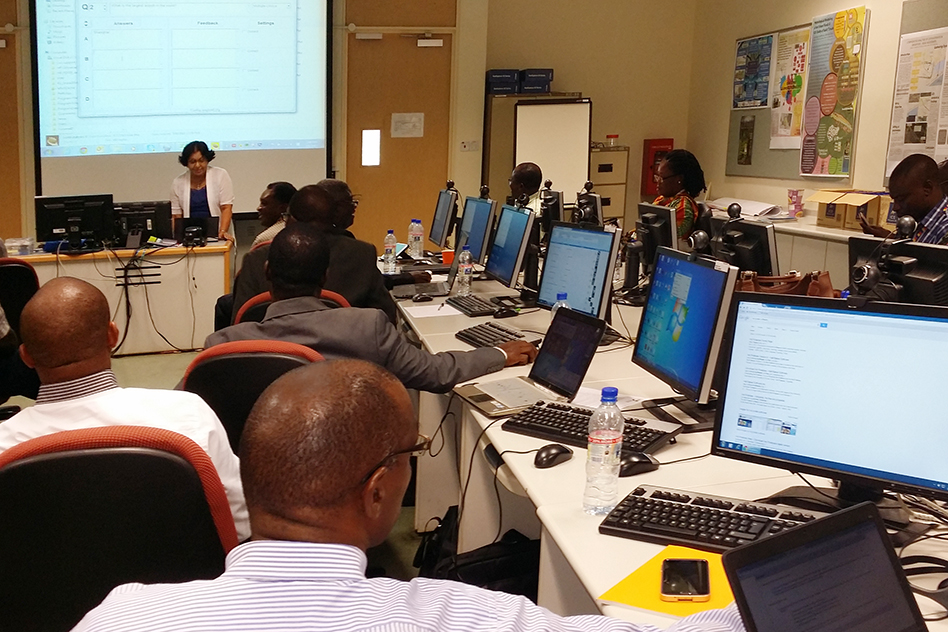
The place of the teacher in the learning process continues to be the focus of many initiatives in education for development. A recent publication by the World Bank suggests that teachers remain the most important factor affecting learning in schools, yet the rapid economic and social change witnessed in many countries, as well as the constantly evolving technologies for teaching, learning and teacher education, present unique challenges for the teaching profession. Teacher upskilling, upgrading, motivation and professional development have, therefore, come to the fore globally.
In developing countries, many governments grapple with the problem of low-learner achievement and general poor quality education. The problem is often aggravated by an insufficient number of qualified teachers, coupled with a lack of relevant teacher training curricula. Moon and Villet (2016) observe that teacher education systems have not been able to produce adequate teachers for their school systems owing to limited space in the campus-based teacher training programmes. Serving teachers continue to contend with heavy teaching loads, besides the pressure to expand their subject knowledge and improve their instructional practice to cope with the demands of the 21st Century classroom.
The Commonwealth of Learning (COL) has been working towards bringing together governments and stakeholders in addressing issues in teacher quality and effectiveness, as these are considered significant in the realisation of learning outcomes for sustainable development. With good quality teachers, we can expect to see a significant impact not only on Sustainable Development Goal 4 (SDG 4) but also other SDGs.
Open educational resources (OER) are expected to play a key role in teacher improvement. In reports presented at the 2nd World OER Congress in Ljubljana, Slovenia, last month, COL identified teachers as key stakeholders in OER. The reports are an outcome of government and stakeholder surveys conducted prior to the Congress, and they emphasise the need for continuous capacity building of teachers to understand, find and use OER. The survey outcomes also suggest that OERs have impacted teacher professional development and enhanced sharing of resources by teachers.
As we celebrate World Teachers’ Day, it is important to reflect on the link between teacher quality and learning outcomes, as well as ways in which information and communication technologies can be harnessed to not only support teacher knowledge but also to create teacher networks and communities of practice that enable local and cross-national sharing of resources, including teacher-generated content.
COL is responding to this need by supporting institutions in partner countries to develop and offer flexible learning to serving teachers by adapting various eLearning methodologies, including microlearning. COL promotes peer collaboration through networked learning and cross-national communities of practice. It has adopted the school-based teacher development approach in recognition of the need to build the capacity of teachers towards transformative teaching without displacing them from school, as well as providing the much needed improvement in teacher competency through technology-supported, teacher-learning practices.
Teachers are encouraged to adopt a hands-on approach by engaging their learners in meaningful problem-based activities that examine real-world issues in the school and wider community. As an outcome, teachers are expected to be able to empower their learners to think critically, access and analyse information, work collaboratively in projects and solve problems creatively. COL also aims to enhance the lifelong learning abilities that teachers need for the constantly changing learning environment.
The Green Teacher Nigeria, for instance, is a programme supported by COL and aims at addressing SDG 4 through a school-based environmental education programme. COL is working with the National Teachers Institute (NTI) in close collaboration with the Ministry of Education in Nigeria. In this initiative, teachers are not only expected to gain knowledge in environmental education but also create quality learning environments through problem-based approaches and teacher-generated content. Similar school-based teacher development initiatives are planned for Sierra Leone, South Africa and Kiribati.
The attainment of SDGs depends largely on school systems providing quality learning opportunities. Teachers hold an important place in this equation. The focus on their on-going professional development in a world with complex socio-economic dynamics is crucial.
Happy Teachers Day!


